Have you ever considered who is responsible for the water line traveling from your street to your house? Most people assume that it’s the city’s responsibility, but that isn’t always the case. In some cases, the homeowner is responsible for maintaining the water line. Who should be held accountable for your water line? Let’s take a look.
What is a Water Main?
A water main is a large pipe that carries water from a public or private source to the homes and businesses in an area. Water mains are typically buried underground, but they can also be found above ground in some areas. The water main’s purpose is to provide drinking water and other services such as fire protection, irrigation, and waste treatment.
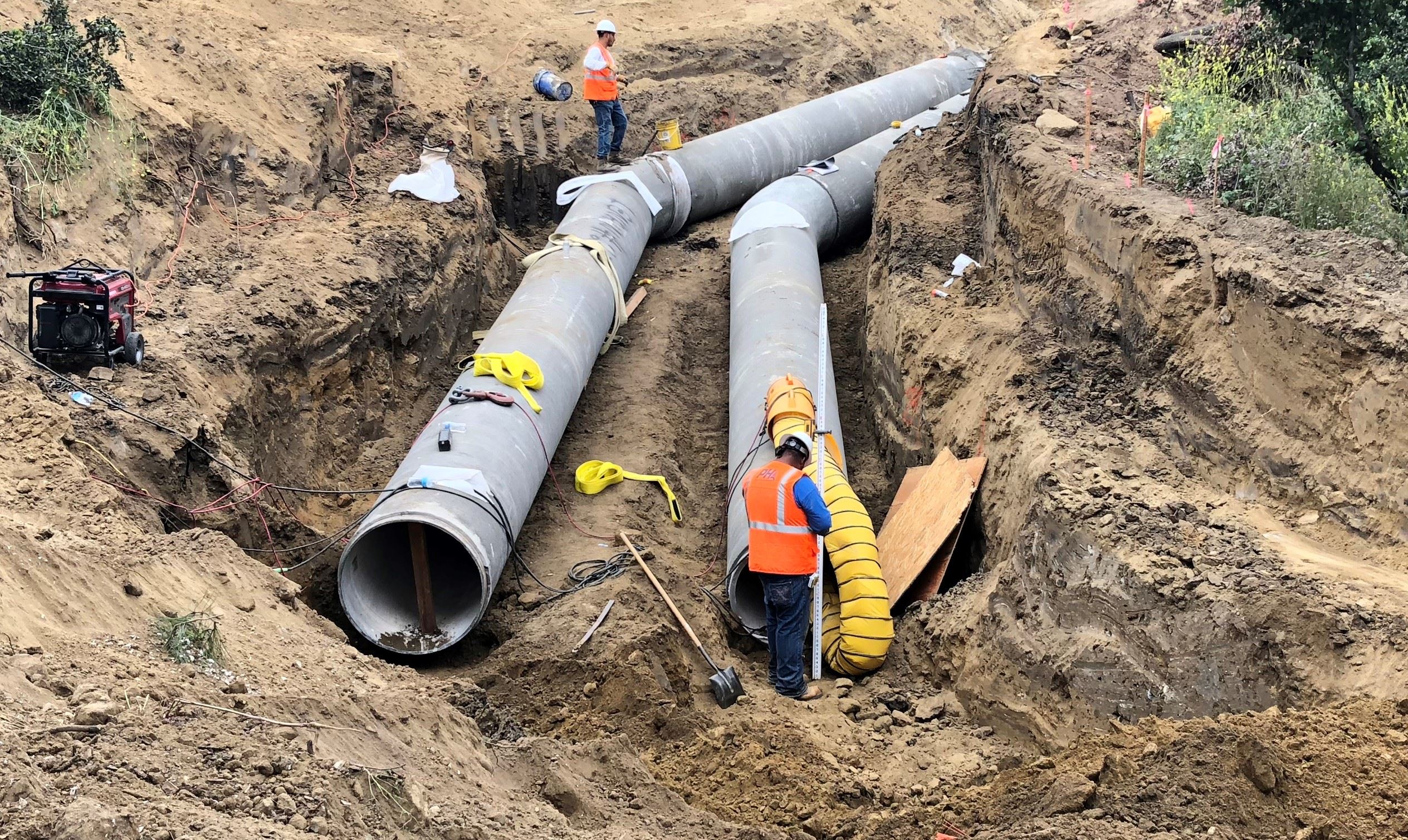
In order to ensure that the water supplied through the mains is safe for consumption, it must meet all applicable standards set by the Environmental Protection Agency (EPA). [1]
When is the City Responsible for Water Lines?
Different cities have different rules and regulations regarding water lines. As a whole, the city assumes accountability for any water lines from the street to the house that are either situated in public right-of-way or belong to its jurisdiction. Conversely, it is up to each homeowner individually to take care of pipes existing within their property boundaries.
In most cases, any repairs or maintenance due to natural wear and tear are also the responsibility of the homeowner.
As with all aspects of home ownership, it’s important to check your local ordinances before making any changes in order to avoid costly fines or other legal issues.
Additionally, many cities offer assistance programs for low income homeowners who cannot afford to pay for necessary repairs – this may be something worth exploring if you are unable to cover such costs.
Knowing who is accountable for the water line from street to house will ultimately guarantee that any problems can be managed promptly and all concerned parties stay compliant with local policies. And if you are a homeowner, it can help make the process of dealing with water lines much simpler. [2]
What is the Life Expectancy for a Water Line?
The life expectancy of a water line depends on several factors, such as the materials used in its construction, the quality of the installation, and how well it is maintained. Generally speaking, copper piping has a life expectancy of around 50 years. PVC and other plastic pipes can last anywhere from 20-50 years depending on the type of pipe used.
It’s important to note that these are general estimates; age alone does not determine whether or not your water line needs to be replaced.
For best results, you should get an experienced professional to inspect your lines every few years and make sure they’re still in good condition. Regular maintenance can also help extend their lifespan by preventing clogs and catching potential problems early on.
Ultimately, who is responsible for the water line from the street to the house depends on where it is located, and who owns the property. If you are a homeowner, you are typically responsible for any plumbing or piping on your own property, including the water lines that provide service.
In any case, having an experienced plumber inspect and maintain your water lines can help ensure they last as long as possible. Keeping up with regular maintenance can also predict potential problems before they become too costly or difficult to repair down the road. [3]
Types of Water Pipes
Water lines from the street to your house are typically made of either polyvinyl chloride (PVC) or polyethylene (PE). PVC is more common in cold climates, while PE is more often used in warm climates. Both types of pipe are durable and reliable, but they can suffer wear-and-tear over time due to temperature fluctuations and other environmental conditions.
Supply Pipe Repairs
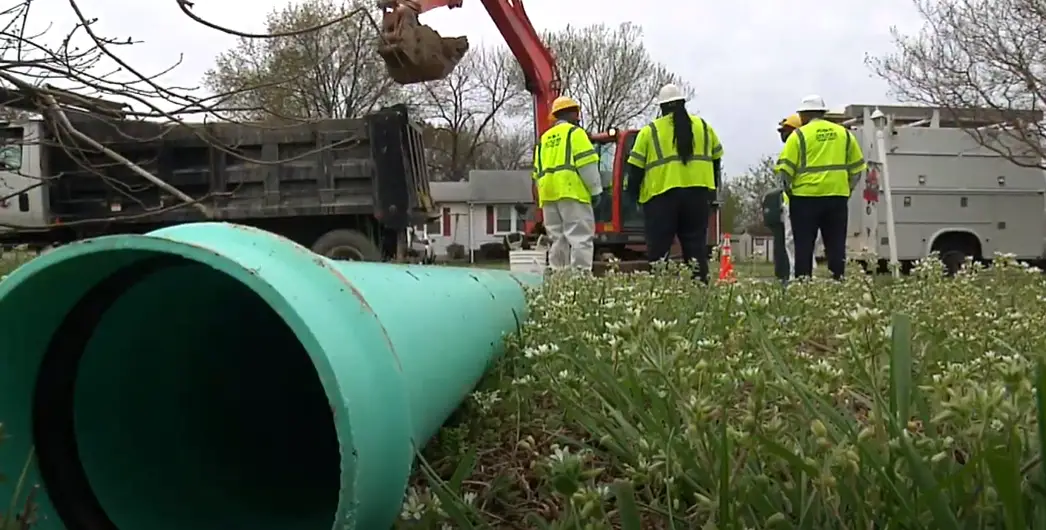
When it comes to water line repairs from a house to the street, the responsibility is typically split between the homeowner and the utility provider. The homeowner is responsible for all of the pipes within their property boundary, as well as any associated fittings or valves. The utility provider’s responsibility covers everything outside of this boundary such as the water main in the street and related infrastructure up to your meter.
If any leaks occur along these lines, they should be addressed right away as they can lead to more costly repairs down the road if not taken care of promptly. Repairs on either side of your property boundary will require different approaches depending on who owns them. If a pipe within your home is leaking you may need to contact a local plumber, while repairs on the utility provider’s portion of the line will require them to be contacted.
If you are unsure who is responsible for a specific repair or leak it is always best to contact both parties for clarification. That way you can ensure that all necessary steps are taken in order to make sure any issues with your water lines are addressed quickly and correctly.
Signs Of An Underground Water Leak
Sudden Increase In Water Usage
When water pipes are leaking somewhere on the property, it can cause a sudden and unexplained increase in water usage. If you’re noticing that your water bills have skyrocketed or there seems to be an excessive amount of water being used, then you should check for any signs of a leak.
Unusual Sounds
Sometimes when underground pipes start to leak, they will make strange noises like hissing or bubbling. This is one of the easier ways to detect if something is wrong with your plumbing system.
Muddy Puddles Around The Home

If there is a significant amount of water leakage from the underground pipes on the property, it may create pools of muddy puddles near the house. This could indicate that the plumbing system is leaking and needs to be repaired.
Cracked Areas Or Bulges Of Pavement
If the underground pipes start to leak, it may cause the pavement to rise or crack in certain areas. This is a surefire sign that something is not right with your plumbing system and should be checked out by a professional plumber. [4]
Unpleasant Smells
If there is an underground water leak, it can cause a distinctive odor to spread throughout the house. If you’re noticing any strange smells coming from your plumbing system, then it could be a sign of an underground water leak.
Low Pressure In The Water Supply
If you have noticed a decrease in the pressure of your water supply, it is important to take action quickly. In most cases this could be an indication of a leak or an old, worn out pipe in need of repair. Knowing who is responsible for the water line from street to house can help determine who should address the issue and how best to go about resolving it.
Thermal Imaging
One way to identify potential leaks in your pipeline is through the use of thermal imaging technology. Thermal imaging allows technicians to detect changes in temperatures in a specific area which can alert them to potential weak spots where a leak may exist.
Acoustic Leak Detection
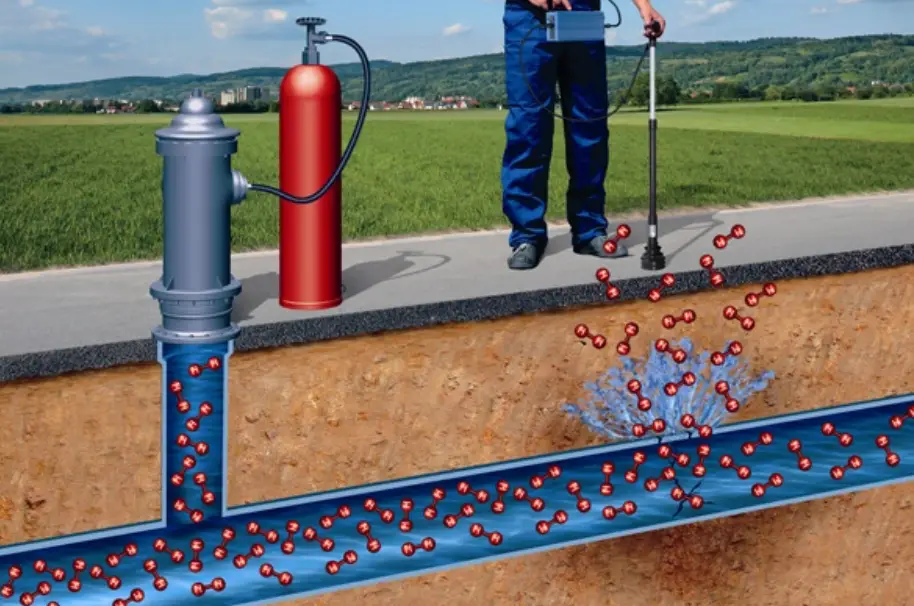
This is another specialized technique used to detect leaks. Acoustic leak detection utilizes special listening devices that can detect the sound of running water beneath the ground. [5]
FAQ
Who is responsible for the water line from the street?
The responsibility for the water line from the street to your house typically lies with the local utility provider. This can vary depending on location, but it is usually their responsibility to install and maintain any infrastructure that requires access to public works such as sewers, water mains, and other pipes.
If your house was built after a certain date in a given area, then this responsibility may fall upon you, however most commonly it will be the local utility provider who is responsible for any repairs or replacements needed. It’s important to check with your local authority in order to find out exactly who is responsible for maintaining and repairing the water line from the street.
What is the local water authority responsible for?
Local water authorities are responsible for the water lines that carry fresh, clean water from the main or trunk line in the street to your property. These lines typically end at and are installed on the customer’s side of the meter, which is usually located near where the service line enters the house. The local water authority also installs, maintains and repairs these lines if necessary. Homeowners and businesses are responsible for all plumbing beyond this point including pipes connecting to dishwashers, toilets, faucets and other fixtures within their properties. Any repair issues related to these systems should be addressed by a licensed plumber.
How do you find a water leak underground?
If you suspect a water line from the street to your house has developed a leak, it is important to address the issue quickly. Leaks can cause flooding of your yard, erosion of soil and higher than normal water bills. In most cases, repairing or replacing an underground water line requires professional assistance from a licensed plumber. If you believe there may be a leak on your property, you’ll need to locate it first. This is typically done by listening for any hissing sounds in the ground near where the service line enters your home or business. You can also look for areas of wetness or unusual growth of plants in their garden that could indicate the presence of leaking water.
Why is there water coming out of the ground?
If you notice water coming up from the ground near where your service line enters your home or business, it is likely the result of a broken pipe. This could be caused by age, tree root intrusion, shifting soil or other external factors. If you have a water meter located near the service line, check for any movement on the dial which could indicate a leak. In most cases, repairing or replacing an underground water line requires professional assistance from a licensed plumber to assess and resolve the issue.
Can water come through the concrete floor?
No, water will not come through the concrete floor. The responsibility of running a water line from the street to the house is typically shared by both the city and homeowner. The city is responsible for connecting the main line to the street while the homeowner is responsible for any lines that lead from the street up to and into their property. This includes any necessary pipes, fittings, and valves needed to make sure that running water can reach their home. It may be necessary for homeowners to contact a licensed plumber in order to install these components correctly or hire an excavation company in order to properly dig trenches for installation on private property.
Ultimately, it is important to ensure that appropriate materials are used and all local regulations are met in order to have a successful water line installation.
Useful Video: Who’s Responsible for Water & Sewer Repairs?
Conclusion
In conclusion, the responsibility for water lines from street to house depends on a variety of factors, including local regulations and homeowner agreements. Typically, municipalities are responsible for the public utility lines that lead up to the property line, while homeowners are typically responsible for any pipes or plumbing that lie beyond it.
However, this can vary depending on both the area and residence in question. If you have questions about your specific situation, contact your local government and/or property management office for more information. They will be able to provide more detailed instructions on who is responsible for water lines from street to house in your particular area.
In any case, it is important to ensure that water lines are properly maintained and regularly inspected. Regular maintenance can help prevent costly repairs or replacements in the future, so be sure to stay on top of your water line maintenance! Overall, understanding who is responsible for water lines from street to house and keeping up with regular maintenance will help keep your home safe, efficient and ready for whatever comes your way!
Thanks for reading!
References
- https://www.trenchlesspedia.com/definition/3327/water-main
- https://blog.allstate.ca/whos-responsible-for-water-service-line-and-sewer-pipe-repairs/
- https://santhoffplumbingco.com/blog/the-lifespan-of-residential-plumbing-pipes/
- https://shaferservices.com/2020/12/23/how-to-tell-if-you-have-a-water-leak-underground/
- https://boggsinspect.com/how-to-tell-if-you-have-a-water-leak-underground/





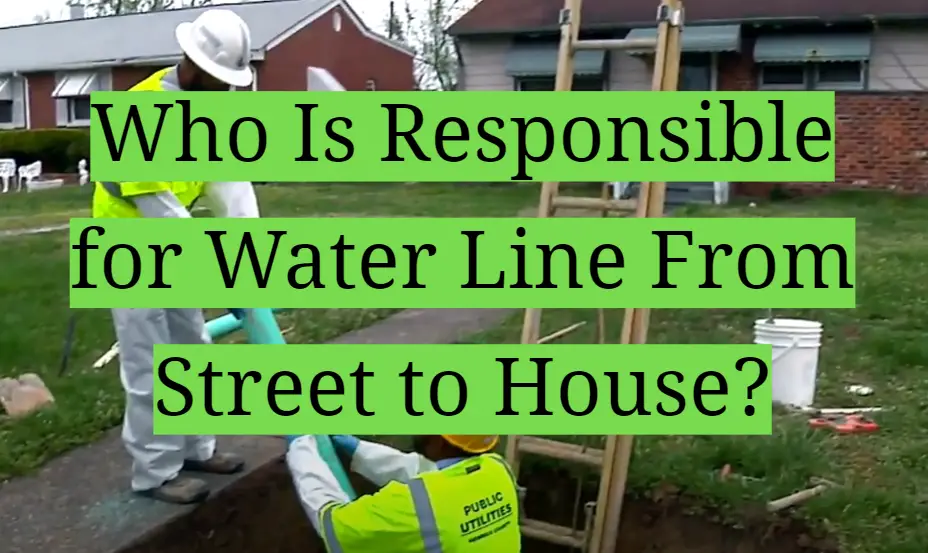





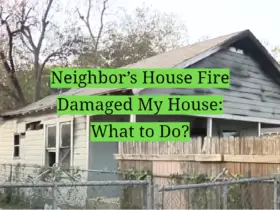


Leave a Reply